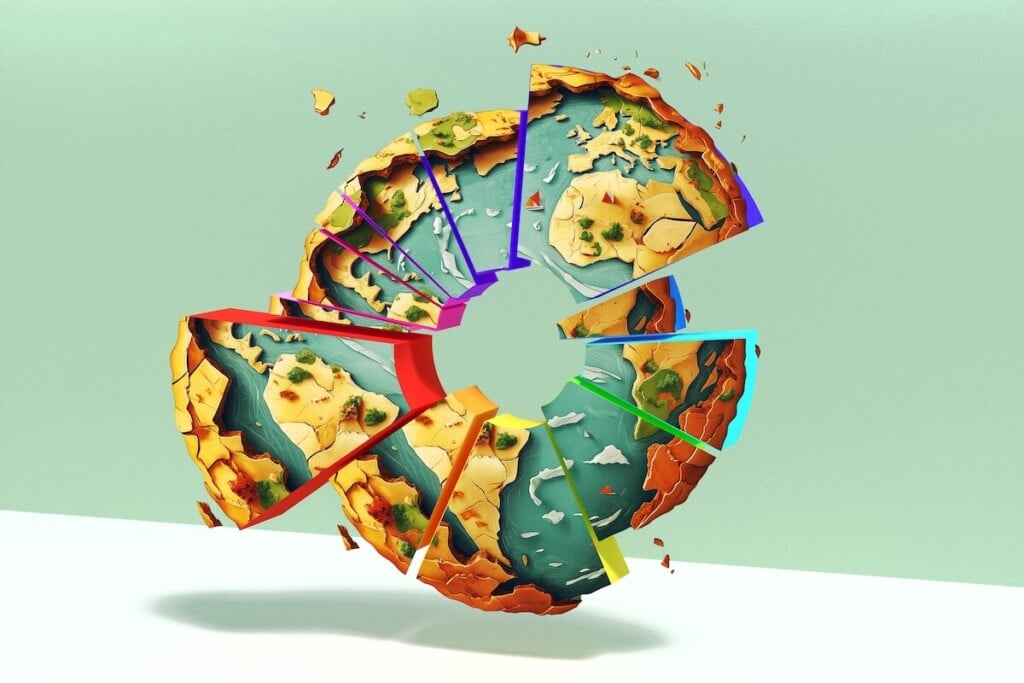Are Elites Growing the Pie or Simply Their Pieces?
The U.S. ranks lower than expected on the Elite Quality Index, pointing to institutions that concentrate power and wealth.

One way to understand Donald Trump and the Republican Party’s triumph in the 2024 elections was their success in channeling the money, power and influence of their elite supporters while simultaneously harnessing voters’ anger against elites. As in every election, Democrats had the backing of their own elites, but their message to ordinary voters failed to resonate as effectively.
Trying to understand what comes next for America and Hawai‘i has led me along many paths, with one leading to the annual Elite Quality Index. This global framework assesses the roles of elites in creating sustainable and inclusive economic and social development in a nation. Do they contribute positively or negatively to the overall well-being of a country and its people?
The EQx is produced by the University of St. Gallen in Switzerland and its partners, who say they focus on “elite quality” rather than simply economic or political power. One reason for my interest in the index is that it aligns with the work of Daron Acemoglu, an economics professor at the Massachusetts Institute of Technology and co-author of several insightful books, including my favorite work of nonfiction, “Why Nations Fail.”
The book’s broad look at world history – covering dozens of modern and historical societies – persuasively answers the crucial question: Why are some nations rich and others poor? Acemoglu and co-author James Robinson argue that the main factor is whether a nation’s institutions are inclusive or extractive.
Inclusive institutions foster development by distributing power broadly and allowing outsiders to ascend into the elite, the authors say. Extractive institutions, usually controlled by elites, hinder growth by concentrating power and wealth.
Annual Appraisal of Why Nations Fail
The EQx tackles the same issue in the here and now: Do a nation’s elites contribute to overall social and economic well-being or do they focus more on extracting resources for their own interests? It is OK for elites to further their own interests if they also further the interests of everyone else. Simply put: Are they growing the pie or simply growing their piece?
In 2024, the index’s top five nations were Singapore, Switzerland, the Netherlands, Japan and New Zealand. The U.S. ranks 16th, the index’s reports says, “Even though the scale, technologies and narrative powers of its political economy should see it at the apex of the ranking.” One major reason it’s not: “The country continues to extract from the young and sits at a lowly #79 in the NextGen Value Creation Barometer,” one of the overall index’s subindexes.
The index is based on 12 “pillars,” such as state capture, a kind of political corruption in which private interests shape laws and policies to their own ends; creative destruction, which is the dismantling of obsolete practices to make way for new practices and innovations; and unearned income – and then 107 specific indicators such as R&D investment, entrepreneurship rates and labor force participation.
Key Force for Creative Destruction
“Unicorns” are an especially fascinating measure. They are defined as startups founded after 2000 with a valuation of $1 billion or more and not yet listed on a public exchange.
The U.S. tops the 2024 Hurun Global Unicorn Index, with 703 unicorns – 48% of the world total. China is second with 340 unicorns and India third with 67.
An EQx report called “Unicorns: The Engine of Creative Destruction and Elite Circulation” says the disruption caused by these companies enables “structural reform that increases the income levels of all social classes.”
The report says, “Unicorns reflect one of the most consequential forms of value creation that an elite system can produce, while also representing a mode of elite circulation. … Along with the new ideas that they bring, vital energy flows to the top of the elite system and enriches it.” That creative destruction improves the overall quality of a country’s elite class.
I could find no elite quality index that ranks Hawai‘i and the other 49 states. The data on a state-by-state level is much harder to come by than the national data used by EQx.
A simple first step like defining who has power in Hawai‘i is hard enough; I know because I did that back in October 2009. I know so much more now, which only makes me less confident about being able to do it again.
Or as Bob Dylan wrote in his song “My Back Pages,” “I was so much older then, I’m younger than that now.”






